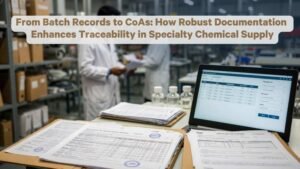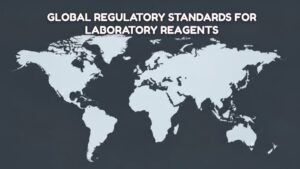In today’s fast-evolving industrial landscape, smart manufacturing is no longer a futuristic concept; it’s a necessity. For the chemical industry, embracing Artificial Intelligence (AI) means staying competitive and setting new standards in efficiency, safety, and sustainability. From real-time monitoring and predictive maintenance to enhanced decision-making and reduced downtime, AI transforms chemical plants into intelligent, data-driven ecosystems.
This blog explores how AI redefines smart manufacturing in the chemical sector and what the future holds for plants embracing this digital evolution.
What Is Smart Manufacturing?
Smart manufacturing refers to the use of advanced technologies like AI, machine learning, and robotics to improve production processes. It combines physical manufacturing systems with digital solutions to enhance responsiveness, reduce waste, and optimize operations.
In the context of chemical plants, smart manufacturing integrates AI with real-time data to improve control over batch production, material usage, and quality assurance.
Why Artificial Intelligence?
AI goes beyond automation. It enables systems to learn from data, identify patterns, and make predictions or decisions without human intervention. In chemical plants, where thousands of variables impact processes, AI helps to:
- Monitor complex reactions in real time
- Optimize equipment utilization
- Improve product consistency
- Predict equipment failures
- Ensure compliance with environmental and safety regulations
AI Applications in Chemical Manufacturing
a. Predictive Maintenance
One of the most practical AI applications is predictive maintenance. By analyzing data from sensors on equipment (like pumps, compressors, and reactors), AI can predict when a component is likely to fail. This proactive approach minimizes unplanned downtime and reduces maintenance costs.
b. Process Optimization
AI algorithms can analyze past production data to suggest optimal operating conditions for processes like distillation, mixing, and crystallization. This not only improves efficiency but also reduces energy consumption and material wastage.
c. Quality Control
AI-driven vision systems and pattern recognition tools can be used to inspect product quality in real-time. Whether it’s spotting inconsistencies in chemical formulations or identifying contamination, AI ensures consistent product quality.
d. Supply Chain & Inventory Management
AI can forecast demand, optimize inventory levels, and improve supply chain resilience. In chemical manufacturing, where raw material costs and storage are critical, this can result in significant cost savings.
AI-Powered Safety & Environmental Monitoring
Safety is paramount in the chemical industry. AI helps improve safety by:
- Monitoring for toxic gas leaks or temperature spikes
- Alerting operators about abnormal behavior in processes
- Ensuring compliance with environmental regulations by monitoring emissions and waste
Additionally, AI-based risk assessment tools can simulate emergency scenarios, helping companies prepare and respond faster.
Enhancing Decision-Making with AI
Gone are the days when decisions were based purely on historical data or gut feeling. AI enables data-driven decisions by processing large datasets in real-time. For plant managers and operators, this means:
- Faster response to market demand changes
- Better resource allocation
- Improved production planning
For instance, if a specific product is forecasted to be in high demand next quarter, AI can guide production planning to meet that demand without overstocking raw materials.
AI in Research and Development (R&D)
Chemical companies are increasingly using AI to accelerate product development. Machine learning models can predict how different chemical compounds will react, cutting down the trial-and-error phase in R&D. This means faster time-to-market and reduced development costs.
Real-World Example: AI in Action
Many global chemical manufacturers have already implemented AI:
- BASF uses machine learning to predict polymer properties, reducing the number of lab experiments needed.
- Dow Chemical leverages AI to optimize ethylene production, one of the most energy-intensive processes in chemical manufacturing.
Even mid-sized companies are partnering with technology firms to integrate AI dashboards and real-time analytics platforms in their plants.
Challenges and Considerations
While the benefits are numerous, AI implementation in chemical plants comes with challenges:
- High upfront cost for infrastructure and training
- Need for clean, structured data to train AI models
- Concerns about data privacy and cybersecurity
- Resistance to change from traditional workforces
However, these challenges can be overcome with a strong digital strategy and gradual adoption.
The Road Ahead
The future of chemical manufacturing lies in digital transformation. AI will continue to play a central role in enabling:
- Self-optimizing plants
- Autonomous process control
- Real-time supply chain visibility
- Sustainable practices through energy and waste minimization
As AI technologies become more accessible, even small and mid-sized chemical manufacturers can benefit from smart manufacturing without massive capital investment.
Why GSP Chem Is Ready for the Future?
At GSP Chem, we recognize the transformative power of AI and smart manufacturing. As a trusted chemical manufacturer in India, we continuously invest in innovative technologies and data-driven practices. Our focus on quality, safety, and efficiency aligns perfectly with AI’s capabilities, making us a future-ready partner in the chemical industry.
We are committed to delivering high-quality reagents, indicators, and stains by adopting cutting-edge solutions that streamline processes and reduce our environmental impact.








